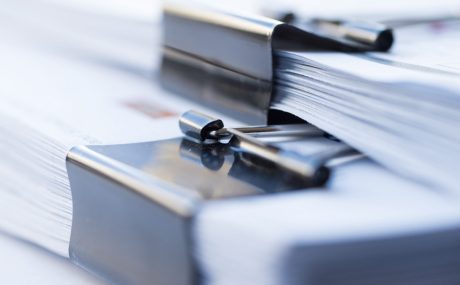The importance of expert evidence
Expert evidence can often tip the balance between winning or losing a case. It is regarded as a pivotal way to test the merits of a case, especially in circumstances where levels of documentary evidence may be limited. Further, it is not uncommon for factual witnesses to struggle with recollection, not least where the pressures of litigation, emotion, and trauma are at play. As Lord Pearce observed in the case of Onassis and Calogeropoulos v Vergottis [1968] 2 Lloyd’s Rep 403: “It is a truism, often used in accident cases that with every day that passes the memory becomes fainter and the imagination becomes more active.”
For all of these reasons, experts are relied upon to offer an objective, informed and independent assessment of a case on the matters on which they are asked to opine. Their duty is to the court and is absolute. It supersedes any duty to the party that is instructing them.
Testing the evidence
After an expert has prepared their report, and has hopefully managed to narrow at least some of the issues with their counterparts in the “without prejudice” discussions, the trial process begins. Traditionally, an expert’s evidence is tested through the process of cross examination. This is an opportunity for an advocate to put his client’s case to the expert in a series of closed questions, and to test the veracity of an expert’s opinion.
As a rule of thumb, an advocate will spend three hours preparing for each hour of cross examination. They will rarely ask a question that they do not know the answer to, and they focus on a variety of sources to gather cross examination material. For example, an expert’s evidence will be tested against their previous reports or publications. Areas of disagreement with an opposing expert also offer kernels of cross examination. Further, advocates will look more broadly at other material and publications on a similar subject matter, all with the objective of finding inconsistencies with an expert’s report and tools to test the evidence.
Since April 2013, the court has had the power to order experts to give their evidence concurrently, rather than sequentially. The process is called “hot tubbing” and it gives the judge an opportunity to address the experts on particular topics and themes of a case at the same time, often focussing on the areas of disagreement in the experts’ joint statements. Hot tubbing can save costs and time, and judges can find it a useful way to cut through the issues. It is not a format that has been used frequently in medical legal cases as yet, but it is something to watch out for.
Top tips and traps
Expert evidence must be transparent, independent and objective. An expert has a formal duty to assist the court on matters within their expertise. This duty overrides any obligation to the person from whom experts have received instructions or by whom they are paid (see CPR 35.3 and the related practice direction). Whilst this might seem quite unremarkable, the number of times experts fall foul of this duty is sobering.
What makes a good expert and what tips should an expert think about before giving evidence?
Before trial, the expert needs to focus on their report. There has been a wave of judicial criticism that expert reports are often too long and are focussed too much on the history and factual narrative of a case, rather than the detailed analysis of a case. Experts should bear this in mind at the drafting stage to avoid a situation where a lengthy report is produced which is weighted at setting out the history of a case, and the analysis is fleshed out in oral testimony.
A good expert witness is undoubtedly someone who knows their subject and can speak authoritatively. As Benjamin Franklin once said: “By failing to prepare, you are preparing to fail.” It is key for an expert to read and re-read their report, together with other materials on the subject and to think clearly about the key areas of disagreement with the opposing expert. In the course of this exercise, an expert might feel the need to change their opinion. It is fundamental to do this well in advance of trial, not in the witness box.
The recent case of Watts v The Secretary of State for Health [2016] EWHC 2835 (QB) is an example of the dim view a court takes of an expert who demonstrates a lack of knowledge, understanding, and a lack of preparation.
Experts are not advocates, and they should not assume the role of an advocate when delivering expert evidence. All too often the court sees experts who fail to deliver objective and unbiased evidence. An expert will undoubtedly know the pressure points of a case, and may have built a rapport with the party who is paying them. However, it is not the role of the expert to promote the case of the party instructing them. To do so is counterproductive. As His Honour Peter Hughes stated in the case of Watts: “The misfortune of such an approach is that it may provide the claimant with an unrealistic hope of success or fatally weaken what might otherwise be a valid claim had the expert’s report been thoroughly researched and presented.” In the Watts case, the claimant was unsuccessful.
On a practical level, a good acid test is for an expert to ask themselves whether they would give the same answer if they were instructed by the opposing party. For example, in the case of Mr Ali v Caton [2013] EWHC 1730 (a road traffic accident case) the defendant’s expert made very strong and personal comments about the claimant. The expert’s approach was subjected to much criticism by Mr Justice Stuart Smith, who concluded that the expert “was obliged to withdraw or qualify important and unjustifiable observations in the written reports … Dr Walton lost the objectivity that is essential for a witness who is requested to provide independent expert evidence to the court.”
Delivering honest, objective evidence may also require an expert to concede points where necessary or accept where there is perhaps insufficient information, or a range of opinion on a particular topic. It is far more effective to make such concessions where it is right to do so, than to fall into the trap of sticking to a bad point for fear of conceding anything. With this in mind, it is also not advisable to predict a line of questioning, second guess the advocate, or give evasive answers in an attempt to make the advocate’s life harder. Experts fall into these traps all too often, and the result is never a positive one.
Stewarts offers independent guidance on the theory and practice of giving evidence, in the context of preparing for trial, and also as part of an expert’s professional development. Please contact us for further information.
You can find further information regarding our expertise, experience and team on our Personal Injury or Clinical Negligence pages.
If you require assistance from our team, please contact us or request a call back from one of our lawyers by submitting this form.
Media contact: Lydia Buckingham, Senior Marketing Executive, +44 (0) 20 7822 8134, lbuckingham@stewartslaw.com






